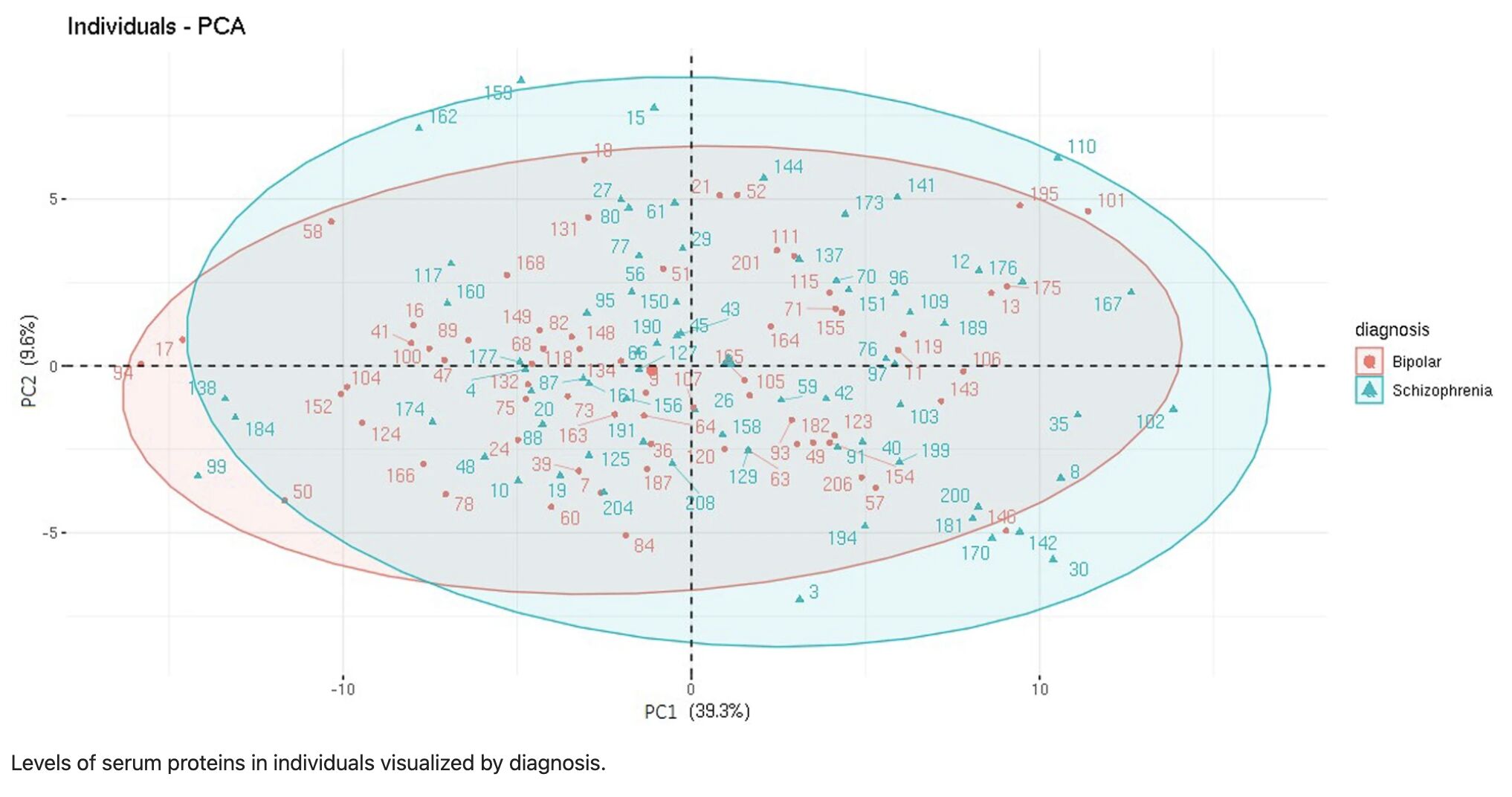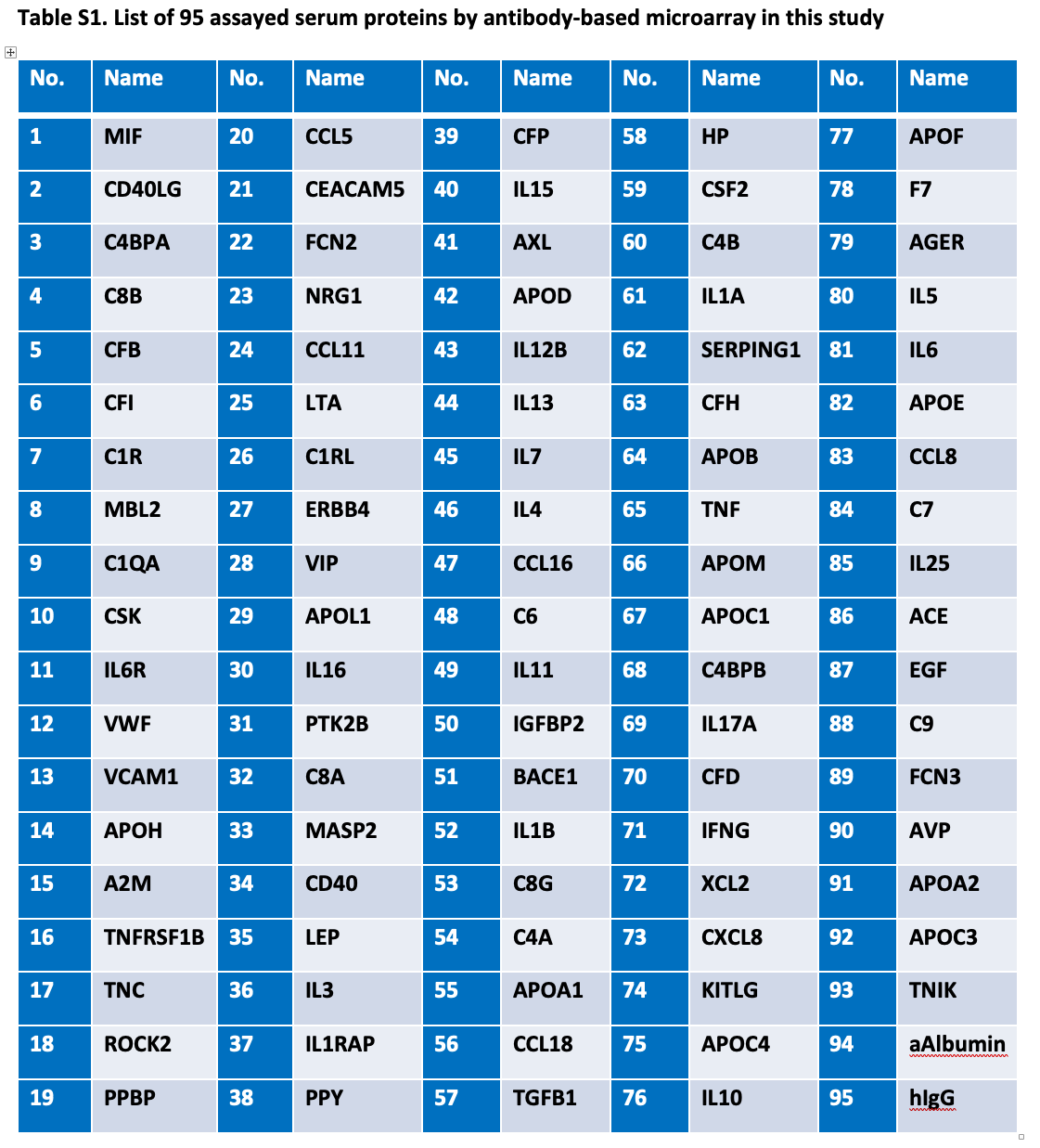Understanding bipolar disorder and schizophrenia using a panel of our antibodies
Article: "Comparative serum proteomic analysis of a selected protein panel in individuals with schizophrenia and bipolar disorder and the impact of genetic risk burden on serum proteomic profiles"

Bipolar disorder (BD) and schizophrenia (SCZ) are different chronic mental health disorders. Despite the lack of certainty regarding the mechanisms that lead to SCZ and BD, compelling evidence suggests that the immune system, particularly inflammation and autoimmunity, plays a role in their origin and course.
In this pilot study, Oraki Kohshour et al. (Translational Psychiatry 2022) measured 95 serum proteins looking for disease-specific biomarkers that could hold potential as predictors of disease risk, progression, and treatment response in SCZ and BD.
The authors applied high-throughput antibody-based protein profiling to serum samples of healthy controls and individuals with SCZ and BD to identify differentially expressed proteins in these disorders.
Multiplex profiling of 95 serum proteins was performed by suspension bead array technology in combination with antibodies generated within the Human Protein Atlas.
Among the 95 protein markers are:
- Anti-IL7 (HPA019590)
- Anti-IL4 (HPA072995)
- Anti-IFNG (HPA002134)
- Anti-CSF2 (HPA057404)

Full list in supplementary material Table S1
Although this pilot study needs independent replication in larger cohorts, the results confirm the relevance of the immune system in differentiating between SCZ and BD, opening new avenues for discovering effective therapeutics and diagnostics approaches in neuropsychiatry, improving patients' quality of life and reducing the socio-economic costs of mental illness.
